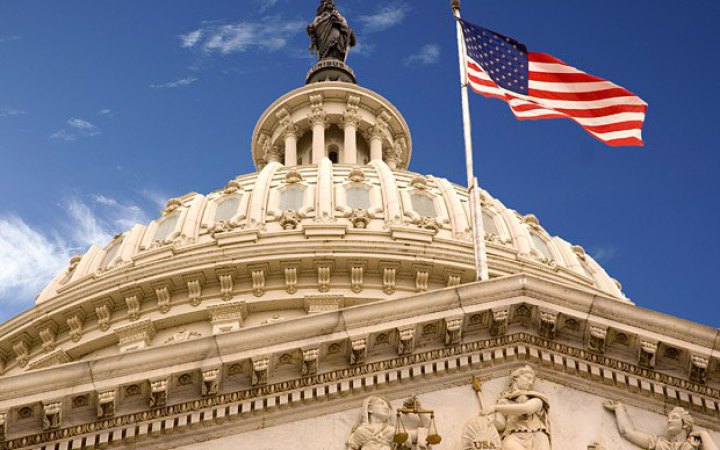Senators released a bipartisan deal Sunday to impose new US immigration restrictions and unlock billions of dollars in Ukraine aid, Bloomberg reports.
Senate Democratic leader Chuck Schumer and his Republican counterpart Mitch McConnell both back the $118.3 billion compromise, which includes funding for Israel.
Ukraine is proposed to receive $60 billion. They want to allocate $20 billion for migration policy, which is $6 billion more than the request of the Joe Biden administration.
The Senate plans to hold the first procedural vote on the bill on Wednesday, 7 February.
At the same time, GOP presidential frontrunner Donald Trump vehemently opposes it, as do many House conservatives.
House Speaker Mike Johnson called the 370-page bill “dead on arrival” in the House. And Majority Leader Steve Scalise, the second-ranking Republican House leader, said in a social media posting that the legislation “will NOT receive a vote in the House.”
"Senators must shut out the noise from those who want this agreement to fail for their own political agendas,” Schumer said in a Sunday statement.
House Republicans could try to alter the deal more to their liking. Ukraine supporters like McConnell also could seek to attach aid to upcoming funding bills essential to keeping open the US government, if a border policy stalemate ensues.
President Joe Biden said he “strongly” supports the compromise, adding it would give him new authorities to “shut down” the border to stem migration. He also said the deal would make the asylum process “fairer and more efficient” and expedite work permits for those who qualify.
Assistance to Ukraine: what the bill provides for
According to Ukraine's ambassador to the US, Oksana Markarova, the $60 billion in aid to Kyiv is to be distributed in the following way:
Defence spending is $50.43 billion:
- $48.4 billion - to the US Department of Defence to further support Ukraine in its fight against Russia until 31 December 2024, inclusive, namely:
- $19.85 billion to replenish US military weapons and equipment provided to Ukraine from the US Department of Defence's stockpile;
- $13.8 billion - for rearmament of Ukraine through the purchase of weapons and ammunition from the US defence industrial base;
- $14.8 billion for military training, intelligence sharing, increased presence in the area of responsibility of the European Command and other support measures.
- 8 million for the Inspector General of the Ministry of Defence to continue oversight of US assistance to Ukraine.
- $1.6 billion in Foreign Military Financing (FMF) to meet the air defence, artillery, maritime security, maintenance and support needs of Ukraine and other regional partners;
- $300 million to help Ukraine secure its borders and promote the rule of law;
- $100 million to support mine action, counter-terrorism and non-proliferation programmes.
Economic, financial, civilian and nuclear security is allocated $9.654 billion:
- $7.85 billion in direct budget support for Ukraine. The draft law prohibits the reimbursement of pensions through direct US budget support;
- $1.58 billion for the development of a self-sufficient Ukrainian economy in priority sectors, such as transport and energy, as well as private sector development;
- $25 million to the USAID Office of Transition Initiatives to support recovery and resilience efforts in Moldova and Ukrainian territories regained from Russia;
- $50 million - to respond to the global food security situation, in particular as a result of Russia's invasion of Ukraine.
- 149 million to the US National Nuclear Security Administration.
Humanitarian aid includes:
- $2.3 billion to the U.S. Department of Health and Human Services to assist newly arrived refugees, including to provide Ukrainians who receive a humanitarian passport in FY2024 with the same benefits as Ukrainians who received a humanitarian passport in FY2022 and FY2023;
- $9.2 billion to support global humanitarian relief efforts through the State Department and USAID by providing emergency food, shelter, and basic services to people affected by complex and protracted crises, including in Ukraine, Gaza and the West Bank, East Africa, South Asia, and other regions of the world. In accordance with US budgetary rules, humanitarian funds are not budgeted and will be allocated on an as-needed basis.
- $299 million to the US Department of State and USAID to support the protection of US diplomatic facilities in Ukraine and Israel, as well as other facilities at risk, and to provide services to US citizens in need of assistance abroad;
- $25 million for the offices of the Inspectors General of the US Department of State and USAID to oversee additional funding.








